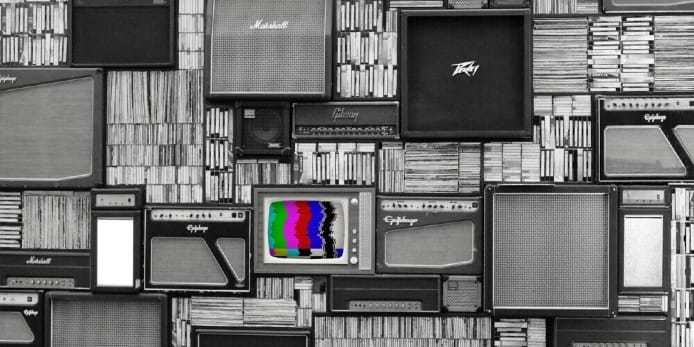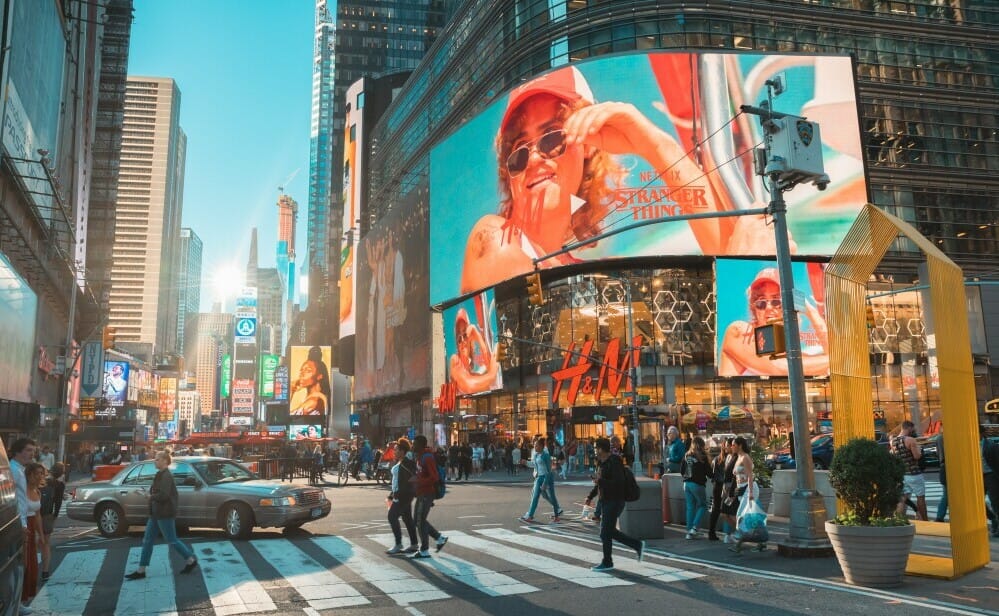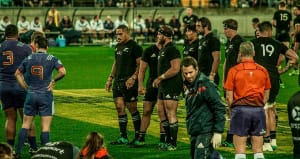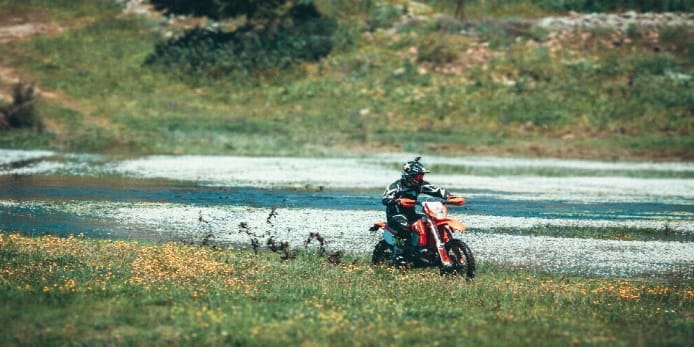The 1970s TV Revolution In South Africa!

According to Guinness…

According to the Guinness Book Of World Records of 1972, Pretoria had one of the finest climates in the world!
Pretorians enjoyed more hours of sunshine than any other city of the same size.
With low humidity and lots of sunshine, where I lived, the weather was a blessing. You just had to learn how to live with the heat.
Consulting the experts would be a great help … except …
Oh, wait … there was no TV in South Africa until 1976 so, there were no weather networks on television. I couldn’t believe it; no one had given me a heads-up!
If I asked, “What’s the temperature going to be today? I was met with that quizzical stare: “The weather will be good. There will be no rain” was the reply.
Despite it being just another beautiful day… the 1970s TV revolution in South Africa was about to descend!
Before The Invasion

People were more available, and life was sociable. They had each other’s attention. They did not miss out on anything!
They wore formal for opening night at the movies. They went to great restaurants which were surprisingly reasonable.
You could see that life before the change was glaringly, obviously, GOOD.
And yet, they stared through a fence at the rest of the world and felt the sting… they felt deprived. They didn’t understand how fortunate they were… because they didn’t have anything else to compare to.
Deeper still, they felt sheltered… and South Africans never wanted to feel “sheltered”.
There was a powder-keg mentality while waiting for TV – with probably the loudest and longest cry of encouragement from the locals… they could not WAIT for its arrival.
… I was not far behind.
How Did We Manage?
No weather networks, sitcoms, or reality TV – just good old-fashioned family fun!
We were brai-ing, and playing cricket under the sun. (Braai is the common word for barbecue).
I never sit still and I used these opportunities to soak up everything I could before my friends became preoccupied.
I joined Ida’s book club and traveled with friends. I learned to ride a horse and took a stab at golf – you don’t want to know. (In case you do… link)
My friend Margaret was a gardener-extraodinaire and hers was a masterpiece!
She taught me to always have a plan – because it can take years for your dream garden to develop. I casually dropped plant names into conversations. I was feeling cool.
And The Modus Operandi For News Would Be?
It did niggle at me that if there was no TV, then how would people get up-to-the-minute information about the outside world?
The first time we went to a movie theatre we hurried to arrive early because everyone wanted to watch the “World News” before the film began.
I thought that was a slick way to update people. Until… a week later we went to another theatre and the World News was the same reel we’d seen the week before.

And how old was it when I first saw it?
I was losing faith in the newsreel thing.
Magazines were an enormous business and the best sources of information and entertainment.
At least, monthly, we were fully informed
on the international front. I could not wait to
get the latest edition of Fair Lady.
Political and satirical magazines were plentiful, but you still had to buy them and READ them.
That being said, it’s much easier to turn on your TV and get live news coverage
24/7… Just saying.
How Did This Affect Me?
Still, they asked: “How much adjustment would it take to have TV and simply get on with life? After all, the world has had TV for 70 years – what is the big deal?“
People suspected there was a whole world out there that they knew very little about. They wanted to be in the know and up-to-date.
But, as far as the lack of real spontaneity in information about world affairs, I became used to the status quo, that truly, life was ok – like the weather.
TV Was Like 1,2,3!
During many introductions, I was asked what it was like to have a TV in our homes.
I couldn’t translate that into words, but from another perspective, I made predictions about
how it would affect them.
“One”, I said, “You will begin to heat your homes!” (You won’t believe it…) This was met with guffaws, “Can you imagine us doing that?” Yes, central heating was on its way, but they didn’t know it yet.
“Two, you will be playing less and less sport”, (After all those great things I said about it!).
“Oh, I’ll never give up my tennis”. But, will you play less often?
Will you allow your ability to slip?
“Three, you will stop eating in your dining rooms!” (Ok, this too has a story to it). ”Well, we might want to eat in front of the TV – what harm could it do?”
You could always use the dining room as your office.
Speaking Of The First Change…
1. They would heat their homes.
In the Highveld, where I lived, it was cold in the winter.
Well, I’m from Canada. No one could tell me about the cold…
Right! … Famous last words… Heh, heh! …
Our first winter, I thought I was going to freeze to death.

On winter evenings from May to October, people huddled in blankets around a fireplace, if there was one, and then went to bed very early.
They didn’t mind getting up with the 4 a.m. sunrise – they had been sleeping for 8 hours!
I did not like being this cold AND not having a TV.
A small part of me missed the comfort and familiarity of having one. Ok, a BIG part of me missed TV.
Thus, The Change:
“Why can’t we have a heated house?” My hothouse-self whined. The Standard Reply: ”It’s only unpleasantly cold for three months of the year. The other nine months are beautiful”.
There was exaggeration on both sides of the argument, but why would anyone opt to live with this uncomfortableness?
It wasn’t Canada-cold, but cold enough for extra blankets and early bedtimes.
Despite my love of living there… we needed central heating with or without television.
I was hot-house-bred and proud of it!
I hated living in an unheated house and I missed central heating.
Since no one was going to sit up to watch TV in the freezing cold, people were changing their minds and central heat had become the rage… finally.
With television came the heat and things were going my way! Yaaaahhh!
Now we could stay up late to watch TV in comfort! … We were HOT now!
More than 75% of homes worldwide are heated in some way. We’re used to this – but in 70s South Africa, this was a huge lifestyle transformation.
Why did it take so long to get there? (My first impression of SA)
And Second?…
2. They will play less sport.

Their British model of education demanded excellence in academics and athletics.
It was their whole lifestyle and everyone had a favorite pastime.
The love of sports was major and, it showed. I was going to miss this rare breed after the advent of TV.
I predicted that TV would become the new coach teaching the language of coolness and wisdom… people would develop awareness!
They would become the great audience, passing judgment on the sport and how it was played. With instant replay, they’ll do it all twice.
They would have access to information, entertainment, education, and exposure to global culture.
All good… but I felt that playing the sport would take a back-row seat. Students would get less sleep because the room was heated and some shows started at 10 pm… it’s an indulgence.
There will be no 6 a.m. tennis match on Friday mornings.
No one was going to bed early these days… sports of all kinds could be watched on TV!
...TV time slips away until one realizes that half a day has disappeared followed by a week, into that little black screen, never to be lived again.
I have to play devil’s advocate here; there was good for me and “bad” for them.
What Happened With Third?…
3. They stopped eating in the dining room…
Why was this important? In the 70s the conversation was lively – we ate, socialized, and
got to know people.
We talked until the wee hours or enjoyed a family dinner. Dining rooms were a social must and rarely formally formal. The gatherings were always fun and even the kids attended.
But add to that a certain refinement about having a dining room, and these people were Refined! They used their dining rooms. It suited their lifestyle.
Now: You could score a “FREE Nest Of 4 TEE-VEE Tables” with every TV purchase as if to mark the end of an era.
Finally! You Have Arrived!
After all the waiting, the change in the populous was electrifying.
The addiction was real and earned. (Beyond The Headlines Of SA In The 1970s)
In 1976, when the airwaves debuted, my predictions came true within two very short years.
South Africa had Dallas, Dynasty, Columbo, Miami Vice, a host of doctor and lawyer shows… and lots of Westerns where the good guys always won.
They are accredited as being one of the last industrial nations to have TV! They launched without advertising – monthly subscriptions paid for the content. Not a bad deal, I’d say.
In return:
1. people heated their homes, :-)))
2. they watched sports on TV, and
3. they ate fast food on TV trays.
Life became so different for them, and I mourned the loss of a unique society.
During sanctions, South Africans continued to push themselves, and conversely, TV showed them how far they had progressed!
I often said “South Africa is a small town” because news travels very fast. They called it their “bush telegraph” mentality and I saw it exercised often.
With this bush-telegraph instinct and the advent of TV, they leaped into the ultra-present where they were exposed to a worldview. “No, we aren’t far behind, are we?” They opined.
But the restaurants stood empty and closed some nights. While everyone stayed home and watched their favorite “dynasty” some businesses took the hit.
Enter 2010!
Seventeen years after I left the country, I visited South Africa and noted the positive changes.
From my eyes, it appeared to be a drastic detour from the life they were used to living.
Eating out became different, and take-home dinners changed forever.
People preferred to entertain at home and eat in front of the TV. Instead of slaving over a hot stove after work, they could pick up a four-course meal at the grocery store for very little more than it would cost to make it yourself.
The grocery pavilion was busiest from 4 o’clock until closing because everything was just cooked and on the menu.
The grocery store skipped the middleman and replaced him with a chef… a very good one.
I would love to see this type of take-out in every grocery store in America.
This was not the usual pre-packaged barbeque chicken wings and pasta. The choice was anything from roast beef, pork, lamb, or veal. They had vegetables, sauteed or raw and desserts, seafood, and crusty bread.
You could fill several insulated boxes and take it all home.
They still had very good restaurants, but inflation hurt them, and now there were fewer.
For 400 years most homes were run with domestic help. In the early 90s, the wage structure was altered and the minimum wage became “hu-gh-er”, and hundreds of domestic workers lost their jobs.
My employee, Lena, was not a domestic worker – she was a housekeeper. She treated our home as her own and took immense pride in her work.
For me, who was living in a foreign country with all new forms of isolation, she was my confidant, friend, and helper.
She became my family. We both had a job to do, and she did hers remarkably well.
(Domestic Help and Food…)
What’s The Good News?
After 1976, with TV in their lives, South Africans burst into the limelight and prepared for the times when sanctions would be lifted forever. When Mandella was elected, sanctions disappeared. For everyone, life changed forever.
People have a habit of copy-catting certain behaviors worldwide and I was happy to experience their warmth and friendliness. With an attitude of gratitude life for South Africans found its place in the world’s hierarchy of best places to visit.
In the 1970s TV Revolution In South Africa! … They rose like giants!
From sandy beaches to jungles to mountains and plains, the country offers an array of movie sets; the weather is phenomenally good and predictable.
They decided the conditions were great enough to start SABC-TV broadcasting, and the movie production industry took off.
The language took a new turn and “I’m making a movie” peppered conversations.
Many foreign films have been produced in South Africa. And a lot of westerns.
The country is more well-represented than ever and in 1993 Jacqui Mofokeng was the first black Miss South Africa. This simple gesture was a major turning point for everyone in the country. (Jacqui Mofokeng, Miss South Africa)
Although many people living there have switched to online video streaming, the vast majority still rely on their TV for news and entertainment.
The most viewed episode on TV in 2022 was SABC’s Uzalo with a viewership of about 6 million. That’s a big number for a single episode in this young TV land.
It topped viewership stats for the whole year!
For a holiday in South Africa today – in 2024 – the exchange rate with USD is 18.5/1 so for every $100 US, you receive R1833.00! A 5-star adult accommodation costing R450/night costs merely $25.00 US.
The standard of medicine in South Africa is very high and is known as a favorite place for “teeth whitening” vacations and skin tightening getaways.
You can afford to fly to South Africa, lay on the beaches, go on safari, eat prawns, see your doctor, and meet some of the most wonderful people in the world – more easily than on a carnival vacation! … Think about it!
Help me out here, because I would love to hear about your experiences…
Did you visit a land where the customs were very different from your own?
Was the culture difficult to navigate?
Have you visited somewhere that changed you forever?
I think It is impossible to visit anywhere without it changing your life.
It would be great to hear from you.
Please leave a comment in the box below; I will get back to you within 24 hours!
Regards, Corinne :-)))






